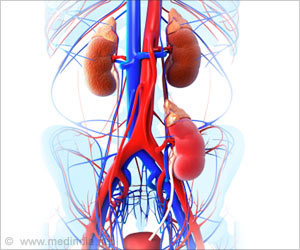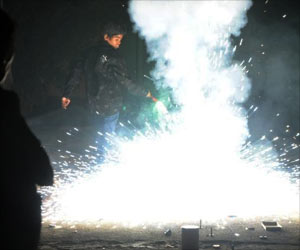Even though Nocardia rarely make healthy people sick, it affects people with compromised immune responses, like organ transplant patients or cancer patients, says Dr. Stephanie L. Baer, infectious disease physician at the Medical College of Georgia and chief of Infection Control and Epidemiology at the Charlie Norwood Veterans Affairs Medical Center in Augusta.
“Kidney transplant patients are at risk for all kinds of infections,” says Dr. Sandeep Padala, nephrologists at MCG and the Augusta University Health System.
U.S. Renal Data System, a national database that collects, analyses, and distributes information on end-stage renal disease in the United States, observed 203,233 kidney transplant recipients from 2001 to 2011. They studied nocardiosis-diagnosed transplant patients, as well as demographics and risk factors, and the reports were published in the Journal of Investigative Medicine.
They discovered 657 patients with a Nocardia infection, which is less than 1% of the total, or.32 percent. This is a lower percentage than previous, smaller studies.
“Being older, having a brain abscess, or being on specific immunosuppressant ended up translating to a higher risk of transplant rejection for these patients,” says corresponding author Baer. Older patients above 65 years, and the ones who received an organ from the deceased donor, were found to be a majority of the infected group. Out of all the medications to suppress immune in organ transplant patients, antithymocyte globulin, decreases the action of drivers of the immune system called T cells making them vulnerable when they develop brain abscess, to acquire nocardia infection.
Nearly 43% of all transplant patients have their transplanted organ fails, and this number rises to 67 percent when nocardia infection is present.
Heightened attention by patients and physicians alike decreased the chances of organ rejection, because of their previous experiences. Screening the patients for Nocardia becomes crucial especially when they experience a combination of brain abscess and pneumonia. The bacterium is not easily traceable and treatments with antibiotics may not work sometimes, in such cases, lung rinsing may be needed.
“It’s a very difficult organism to both diagnose and treat because it’s a higher-order bacteria; it’s more sophisticated than most bacteria,” Baer says. “It only likes to infect specific places in the body like the lungs and the brain and you have to use special stains to see it.”
Identifying the infection in the preventive stages is important as the medication to clear bacterial infection in transplant patients is more often toxic to the transplanted organ. People can get Nocardia in their lungs by breathing in dust or digging in the dirt when a finger is cut. The bacterium can also be found on medical equipment and enter a surgical wound after a procedure.
The brain is the most common site for disseminated infection, which means the infection has spread throughout the body, and up to 44% of patients with infection in the brain or spinal cord die. A weakened immune system raises the risk of infection, but it also raises the risk of infection-related death, according to the CDC.
Source: Medindia



